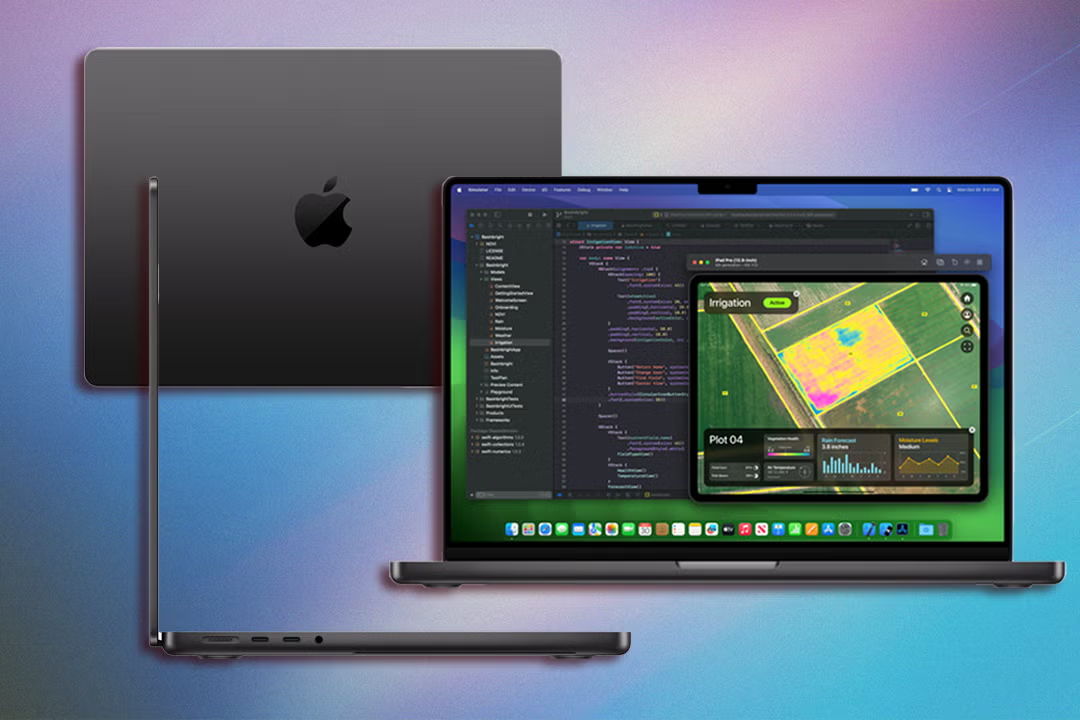(Travel Apps)Imagine waking up in a bustling city one month, then finding yourself sipping chai along the beachfront in Bali the next. That’s the reality for digital nomads—a lifestyle defined by freedom, exploration, and the ability to work from anywhere on the globe. In 2025, technology has made this lifestyle even more accessible, with a new wave of travel apps designed to help you navigate, connect, and thrive no matter where your wanderlust takes you.
In this guide, we will look at ten travel apps. These apps are essential for every tech lover to have on their phone or tablet.
Why the Right travel apps Can Make or Break Your Nomadic Lifestyle
It’s easy to romanticize the life of a digital nomad. Imagine working in hammocks, sipping fruit smoothies, and avoiding the daily commute. But behind the Instagram-worthy shots lies a patchwork of logistical challenges: budgeting, booking accommodations, juggling time zones, ensuring secure internet connections, and more. Having the right apps can literally save you hours (and dollars!) while minimizing stress. They serve as your virtual assistant, local guide, and personal concierge rolled into one.
How the Digital Nomad Landscape Evolved Since 2020
The shift to remote work sped up in 2020. Many professionals discovered they could work from anywhere with a good internet connection. Fast-forward to 2025, and being a digital nomad isn’t just a hipster trend—it’s a legitimate career path. There is now a whole system designed for location-independent workers. This includes co-living spaces, travel insurance for nomads, and special mobile apps.
The Evolving Needs of Digital Nomads
Balancing a flexible schedule with professional responsibilities is no small feat. Today’s digital nomads demand tools that can keep up.
Remote Work Routines and Time Zone Management
Whether you’re closing deals with clients on another continent or coordinating with a global remote team, time zone management is crucial. Gone are the days of frantically Googling “What time is it in London right now?” The best apps automatically account for your location and show you the local times of your collaborators.
Seamless Connectivity Across Borders
Spotty Wi-Fi at cafés? Data roaming nightmares? A strong connectivity plan is the backbone of successful remote work. Apps that track Wi-Fi hotspots or simplify eSIM data plans can drastically reduce your risk of being caught offline.
Criteria for Choosing the Best Travel Apps
With a market flooded by thousands of “life-changing” tools, how do you separate the gems from the duds?
User Experience and Cross-Platform Availability
A clunky interface or poorly optimized app can ruin the user experience. Our picks prioritize intuitive layouts, smooth performance, and compatibility across iOS, Android, and even web browsers.
Offline Functionality and Data Usage
Digital nomads frequently find themselves in locations with weak or expensive data connections. Apps that allow offline access, or at least minimize data usage, get a big thumbs up.
Security Features and Privacy
From password managers to end-to-end encryption, these apps help keep your data safe. They work well even on public networks that are not secure.
1: NomadBudget (Expense Tracking travel apps)
Few things can derail a nomadic lifestyle faster than poor financial planning. NomadBudget stands out as a specialized expense tracker tailored to the traveling professional.
Key Features and How It Works
NomadBudget shows multiple currencies in real time. This lets you see how much you’ve spent in your home currency. It also categorizes expenses—like flights, accommodations, and coworking fees—so you can quickly spot overspending patterns.
Integrations with Bank Accounts
This travel apps connects with bank accounts and popular digital wallets, like PayPal and Apple Pay. It automatically gathers transaction data. If you run a digital business or freelance, you can connect it to invoicing platforms like FreshBooks or QuickBooks.
Pros, Cons, and Relevant Link
- Pros: Intuitive design, real-time currency updates, robust analytics.
- Cons: Premium version can get pricey, especially if you need multiple bank integrations.
- Link: NomadBudget Official Site
Read Also 9 Mobile Hotspots That Will Keep You Connected in 2025
2: AirBnB 2.0 (Accommodation Finder travel apps)
Yes, we all know AirBnB—but the 2025 version includes new features that cater specifically to long-term travelers and remote workers.
New Features for 2025
- Co-Living Filters: Search for properties specifically designed for remote workers, including desks, ergonomic chairs, and high-speed internet.
- Flexible Reservations: Extend your stay on the fly if you decide you’re not ready to leave that gorgeous beach.
Long-Term Stay Discounts
Pro tip: Many hosts now offer monthly discount rates that slash daily costs by up to 50%. By booking longer stays, you’ll not only save money but also reduce the hassle of constantly relocating.
Pros, Cons, and Relevant Link
- Pros: Wide global availability, user reviews for easy vetting, filters for remote work amenities.
- Cons: Fees can add up, and the most popular listings book fast.
- Link: AirBnB
3: WiFiMapper Ultra (Connectivity Locator travel apps)
One of the top challenges digital nomads face is finding reliable Wi-Fi. WiFiMapper Ultra tackles this issue head-on.
Mapping Wi-Fi Hotspots Worldwide
Using crowdsourced data and official provider info, WiFiMapper pins the best Wi-Fi hotspots on a map. You’ll see real-time ratings, typical speeds, and even whether an outlet is available to charge your gear.
Real-Time Speed Tests and Reviews
The app’s community members can run speed tests, add comments, and upload pictures of seating setups. This crowdsourced approach ensures you know what you’re walking into before you even arrive.
Pros, Cons, and Relevant Link
- Pros: Up-to-date hotspot info, robust user community.
- Cons: Limited offline functionality—better have a data plan to use it on arrival.
- Link: WiFiMapper
4: TripLock (Security and VPN travel apps)
Working from café Wi-Fi networks can be a recipe for disaster if you’re not careful. That’s where TripLock comes into play.
VPN for Safe Browsing on Public Wi-Fi
TripLock creates a secure tunnel between your device and the internet. This helps stop hackers from stealing your data. With servers in over 100 countries, you can avoid geo-restrictions. This lets you access your favorite streaming services anywhere you go.
Password Manager and Document Vault
Storing passports, visas, or sensitive contracts in the cloud is risky—unless you encrypt them. TripLock’s integrated password manager and vault let you keep everything in one secure place. No more rummaging through multiple apps.
Pros, Cons, and Relevant Link
- Pros: All-in-one security solution, user-friendly interface.
- Cons: Premium subscription can be expensive.
- Link: TripLock Security
Read Also 8 Things You Need to Know Before Transitioning to Remote Tech Work
5: Packr Pro (Smart Packing Checklist travel apps)
Tired of overpacking or forgetting essentials? Packr Pro uses AI to build custom packing lists based on your destination, travel dates, and planned activities.
AI-Driven Packing Suggestions
Heading to a chilly destination? Packr Pro checks local forecasts and suggests clothing layers. Beach getaway planned? It ensures you have swimsuits, sunscreen, and a waterproof phone pouch. The app even accounts for special gear if you’re hiking or scuba diving.
Climate and Activity-Based Recommendations
Packr Pro looks at weather data from sites like AccuWeather. It then checks this data against your itinerary. This helps create a packing guide for each day of your trip. You can customize categories (like “electronics” or “healthcare items”) to match your preferences.
Pros, Cons, and Relevant Link
- Pros: Intelligent suggestions, user-friendly design, offline checklists.
- Cons: Occasional over-suggestions if you don’t refine the AI’s assumptions.
- Link: Packr Pro
6: Trello Nomad Edition (Productivity Tool travel apps)
Standard Trello is popular with project managers. The Nomad Edition is made for people who work remotely.
Task Management on the Go
Trello Nomad Edition helps you with tasks like writing blog posts and scheduling client calls. It has custom boards that consider time zone differences. Add location-based tags to find tasks that are best done in a city with good internet. This helps identify tasks that need real-time teamwork.
Custom Templates for Travel Planning
This edition also has built-in templates for itinerary planning, flight schedules, and even budgeting. Drag-and-drop functionality keeps everything organized. You can share boards with fellow nomads if you’re collaborating on group trips.
Pros, Cons, and Relevant Link
- Pros: Perfect for visual planners, integrates with Slack and Google Calendar.
- Cons: Might feel overwhelming for solo travelers who prefer simpler checklists.
- Link: Trello
Read Also 7 Steps to Transition from a 9-to-5 Job to a Remote Tech Career
7: RoadTripper XR (Transportation & Navigation)
RoadTripper XR is your all-in-one solution for getting around new places, from short subway hops to long cross-country drives.
Multi-Modal Transit Planning
You can choose trains, buses, or rideshares. RoadTripper XR collects schedule data to show you the fastest or cheapest routes. It also alerts you to local strikes, holiday disruptions, or weather-related closures.
Augmented Reality Directions
Your phone’s camera shows arrows on the real world. These arrows guide you from point A to B. You don’t need to look down at a map. It’s a game-changer for navigating crowded train stations or labyrinthine city streets.
Pros, Cons, and Relevant Link
- Pros: Real-time updates, AR makes navigation intuitive.
- Cons: Heavy on battery usage, can be data-intensive.
- Link: RoadTripper XR
8: FoodieFinder (Local Cuisine Discovery)
It’s no secret that a big part of traveling is trying new flavors. FoodieFinder ensures you never waste a meal.
Personalized Taste Profiles
After rating a handful of dishes, the app’s AI tailors recommendations to your palate. Craving spicy street food, vegan sushi, or the best local coffee brew? FoodieFinder has you covered.
Integration with Delivery Services
When you’re too swamped with deadlines to venture out, FoodieFinder syncs with on-demand delivery platforms. It’ll even show you which restaurants offer special nomad-friendly discounts.
Pros, Cons, and Relevant Link
- Pros: Constantly updated recommendations, user reviews, and images.
- Cons: Some smaller towns might have fewer listings.
- Link: FoodieFinder
9: CultureTap (Language & Cultural Tips)
Avoid cultural mistakes and language issues with CultureTap. It is your one-stop shop for translation, local customs, and cultural details.
Real-Time Translation and Phrasebook
Simply speak into your phone, and CultureTap translates your words into the local language—complete with audio playback. The phrasebook includes slang and region-specific idioms, perfect for impressing locals.
Etiquette Guides for Global Destinations
From tipping customs in Japan to greeting styles in South America, CultureTap saves you from awkward moments. The app’s offline mode means you can check etiquette tips anytime, even if you’re deep in the countryside.
Pros, Cons, and Relevant Link
- Pros: Broad coverage of languages, offline phrasebook, cultural do’s and don’ts.
- Cons: High-level translations can sometimes be imprecise.
- Link: CultureTap
Read Also 8 Tools Every Digital Enthusiast Should Use to Learn AI and Machine Learning
10: ZenWork (Mindfulness and Work-Life Balance)
Being a digital nomad often means juggling client deadlines while battling jet lag. ZenWork offers a collection of mindfulness tools to keep your mental health in check.
Guided Meditation for Jet-Setting Professionals
Choose from quick, five-minute stress busters or longer sessions targeting anxiety, focus, or creativity. The library expands monthly, adding new guided meditations crafted by mental health professionals.
Time Zone-Aware Stress Relief Sessions
ZenWork automatically detects your time zone and suggests sleep or relaxation sessions aligned with local daylight hours. Perfect for recalibrating your internal clock after long-haul flights.
Pros, Cons, and Relevant Link
- Pros: Helps prevent burnout, easy-to-use interface.
- Cons: Occasional subscription reminders can feel spammy.
- Link: ZenWork App
Additional Honorable Mentions
SocialNomad, TravelSafe
- SocialNomad: Great for finding local meetups, coworking buddies, or potential travel partners. It’s basically a social network for digital nomads, complete with event listings and group chats.
- TravelSafe: Focuses on emergency alerts, local health guidelines, and real-time travel restrictions. While it’s invaluable during uncertain times, its narrower scope puts it below our top 10 picks.
Why They Didn’t Make the Top 10
Both apps serve niche needs extremely well. However, they don’t provide the same broad, day-to-day functionality that the chosen top ten offer. Think of them as useful add-ons rather than core tools.
Read Also 7 Must-Know Concepts in AI and Machine Learning for Beginners
Conclusion
Technology has truly revolutionized the digital nomad lifestyle. You can use these ten apps to manage your money. They help you find places to stay. You can stay connected and explore culture. You can also take care of yourself, all from your phone. Whether you are a seasoned traveler or booking your first one-way ticket, the right software can help. It can make challenges easier to handle.
Keep exploring, keep learning, and let these travel apps do the heavy lifting on everything from budgeting to Wi-Fi hunting. Life is too short to waste on bad places or missed chances. Don’t let a lack of tools hold you back. Embrace these digital solutions, and your 2025 nomadic adventures will be smoother, more fulfilling, and downright magical.
Q1: Are these travel apps all free or paid? A mix! Many services offer freemium models. Basic features are free, but you pay for premium perks. These perks include unlimited usage, advanced analytics, or offline functionality.
Q2: Can I rely on these travel apps for off-the-grid travel? While some features work offline, most require at least intermittent internet to update data. If you’re venturing far off-grid, consider a satellite communication device.
Q3: Which app is best for absolute budget control? NomadBudget is the go-to if you need granular expense tracking, currency conversions, and automated alerts on overspending.
Q4: How do I handle language barriers beyond basic translations? CultureTap is your best bet. Alongside translations, it provides cultural insights, etiquette tips, and recommended phrases specific to each region.
Q5: Do I really need a VPN if I’m using secure hotel or café networks? Public networks are rarely 100% secure, even with passwords. TripLock (or any solid VPN) provides an extra layer of protection, keeping your personal data and client information safe.











